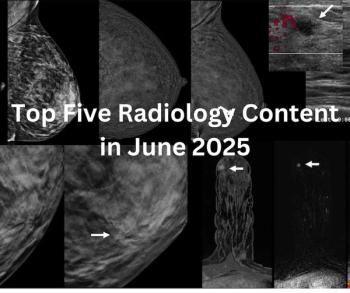
Catch up on the most-well viewed radiology content in June 2025.
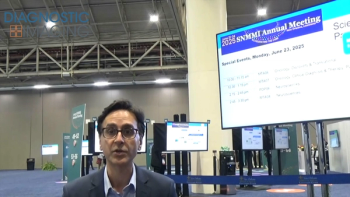
In a recent interview at the SNMMI conference Amir Iravani, M.D., discussed a new sub-analysis from the CONDOR study, which revealed consistently high positive predictive value for 18F-piflufolastat PSMA PET/CT in the detection of local prostate cancer recurrence.

Catch up on the top AI-related news and research in radiology over the past month.
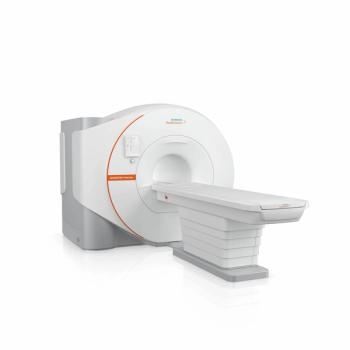
Offering a cost- and resource-saving DryCool magnet technology, the Magnetom Flow.Ace MRI system reportedly requires 0.7 liters of liquid helium for cooling over the lifetime of the device in contrast to over 1,000 liters commonly utilized with conventional MRI platforms.
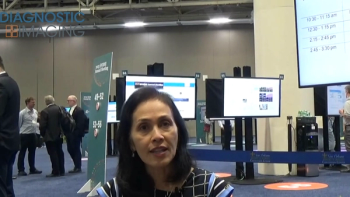
In a recent interview at the SNMMI conference, Liza Lindenberg, M.D., discussed preliminary research findings that suggest the potential of the 18F-fluciclovine PET/CT for detection of multiple myeloma.
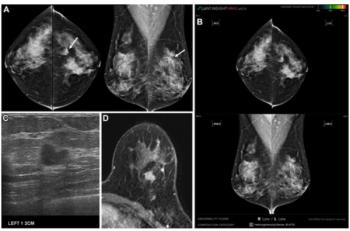
Artificial intelligence (AI) software had a 14 percent false negative rate in a new study involving over 1,082 women with invasive breast cancer.

For patients being treated with radiopharmaceutical agents for metastatic prostate cancer, the combination of botulinum toxin and an anti-nausea patch led to a 30 percent reduction in PSMA uptake in the salivary glands, according to preliminary research findings presented at the SNMMI conference.
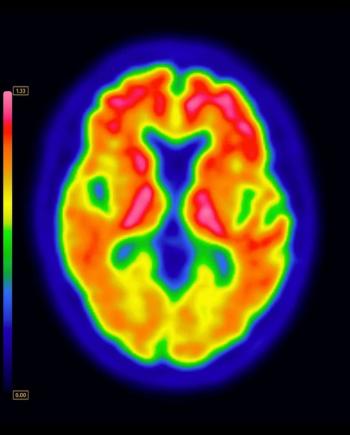
Expanded indications for the flutemetamol F18 injection include amyloid quantification and monitoring of anti-amyloid treatments.
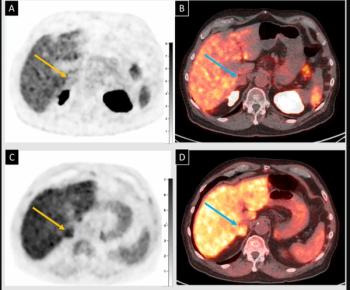
In an ongoing prospective study of patients with biochemical recurrence of PCa and an initial negative PSMA PET/CT, preliminary findings revealed positive 18F-fluciclovine PET/CT scans in over 54 percent of the cohort, according to a recent poster presentation at the SNMMI conference.

The additional indication for the preparation kit of gallium Ga-68 gozetotide may facilitate earlier use of PSMA-targeted treatment for men with prostate cancer.
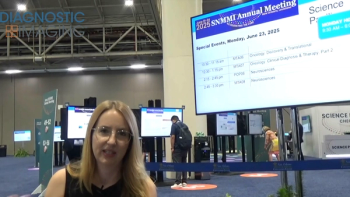
In a recent interview at SNMMI conference, Merle Hoenig, Ph.D., discussed new tau PET research examining genetic and modifiable risk factors that contribute to the progression of Alzheimer’s disease.
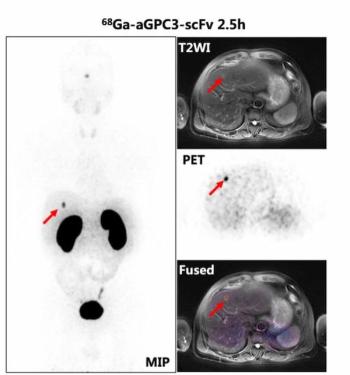
In addition to over 90 percent sensitivity in detecting hepatocellular carcinoma (HCC), the glypican-3 (GPC3) targeted PET tracer 68Ga-aGPC3-scFv appeared to be advantageous in identifying HCC tumors smaller than one centimeter, according to pilot study findings presented at the SNMMI conference.
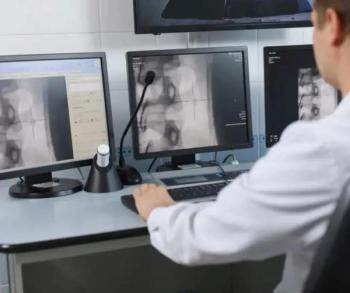
Whether it comes in the form of seemingly extraneous addendums or the need to emphasize key points in radiology reporting, repetition can be a constant source of frustration.
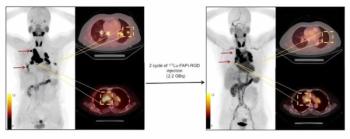
The dual-targeted 177Lu-DOTA-FAPI-RGD reportedly reduced or stopped the growth of cancer lesions in 88.9 percent of advanced adenocarcinomas in a small cohort of patients with varied cancers including pulmonary, pancreatic and ovarian cancer, according to new research presented at the SNMMI conference.
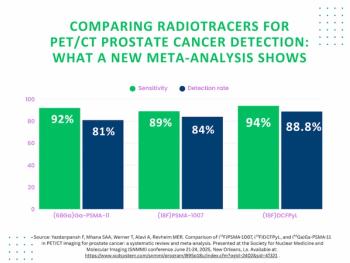
While (68Ga)Ga-PSMA-11 offers a pooled sensitivity rate of 92 percent for prostate cancer, (18F)-based radiotracers may offer enhanced lesion detection as well as improved imaging flexibility, according to a meta-analysis presented at the Society for Nuclear Medicine and Molecular Imaging (SNMMI) conference.
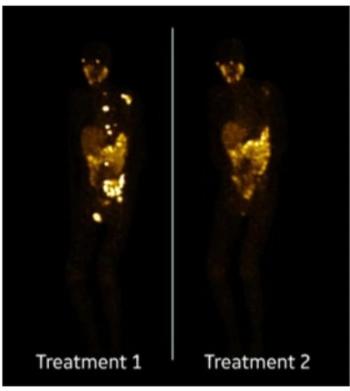
Multimodal treatment monitoring, including SPECT/CT exams 24 hours after treatment with Lu-177 PSMA-617, may have facilitated significantly shorter therapy durations and reduced side effects in patients with mCRPC, according to a two-year study presented at the Society for Nuclear Medicine and Molecular Imaging (SNMMI) conference.
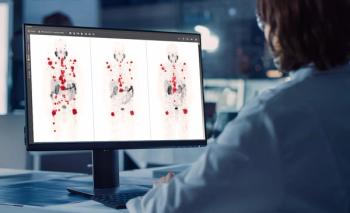
Emphasizing a zero-click experience, the updated LesionID Pro software, to be introduced at the SNMMI conference, reportedly provides AI-powered automated insights into whole-body tumor burden with PET and SPECT imaging.

Catch up on the top radiology content of the past week.
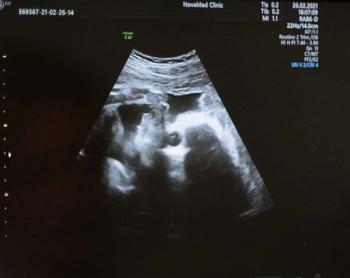
The AI software reportedly facilitates ease of use and improved accuracy in fetal ultrasound evaluations.
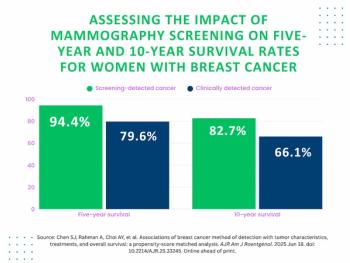
In a study involving over 1,000 women with breast cancer, researchers found that patients with screening-detected breast cancer had a five-year survival rate of 94.4 percent in comparison to 79.6 percent for women with clinically detected breast cancer.
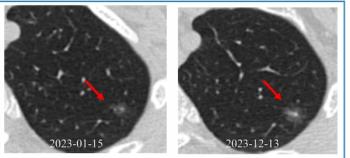
Emerging research shows that a multiple time-series deep learning model assessment of CT images provides 20 percent higher sensitivity than a delta radiomic model and 56 percent higher sensitivity than a clinical model for prognostic evaluation of ground-glass nodules.

A new report conveys the cumulative impact of ongoing challenges with radiologist residency positions, reimbursement, post-COVID-19 attrition rates and the aging of the population upon the persistent shortage of radiologists in the United States.
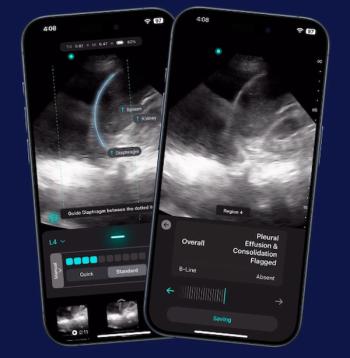
The 14th FDA-cleared AI software embedded in the Exo Iris ultrasound device reportedly enables automated detection of key pulmonary findings that may facilitate detection of pneumonia and tuberculosis in seconds.
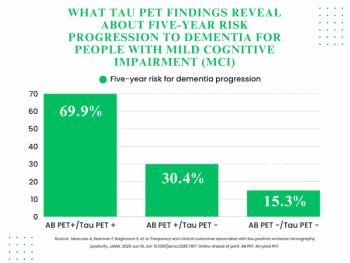
For people with mild cognitive impairment (MCI), new research suggests that a combination of amyloid-positive and tau-positive PET findings is linked to a nearly 70 percent risk of progressing to dementia in five years in comparison to an approximate 30 percent risk for those with amyloid β positive and tau-negative PET.
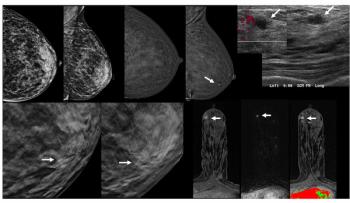
While the addition of contrast-enhanced mammography (CEM) to digital breast tomosynthesis (DBT) led to over a 13 percent increase in false positive cases, researchers also noted over double the cancer yield per 1,000 women in comparison to DBT alone.
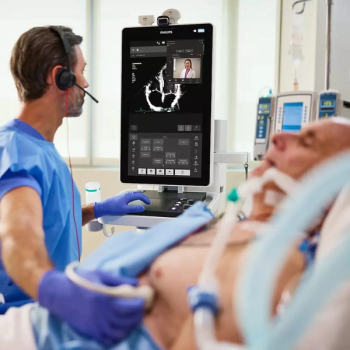
Offering a combination of intuitive touchscreen controls and enhanced image clarity, the portable Flash 5100 POC ultrasound platform reportedly facilitates confident and rapid assessment in emergency radiology and critical care settings.
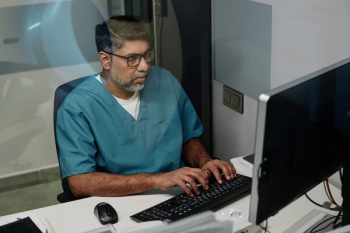
Looking for an enlightened approach to billing isn’t easy amid a sea of third-party payor excuses, absurd addendum requests and CT headers seemingly etched in stone.
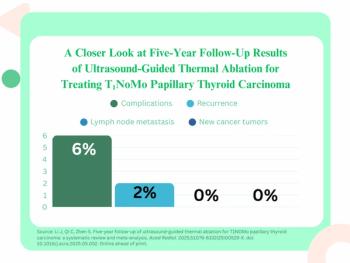
In a meta-analysis involving over 2,200 patients with T1NoMo papillary thyroid carcinoma, researchers noted 2 percent recurrence and no cases of lymph node metastasis five years after ultrasound-guided thermal ablation.
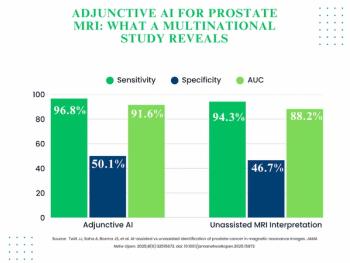
The use of adjunctive AI in biparametric prostate MRI exams led to 3.3 percent and 3.4 percent increases in the AUC and specificity, respectively, for clinically significant prostate cancer (csPCa) in a 360-person cohort drawn from 53 facilities.
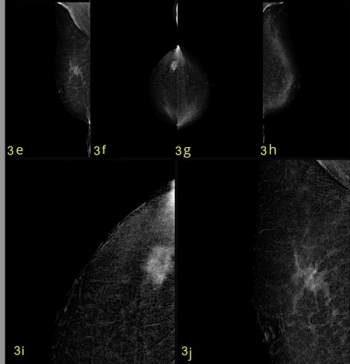
New research showed a 96 to 97 percent sensitivity for contrast-enhanced mammography (CEM) with an increased iodine delivery rate facilitating robust contrast enhancement for women with aggressive breast cancer.